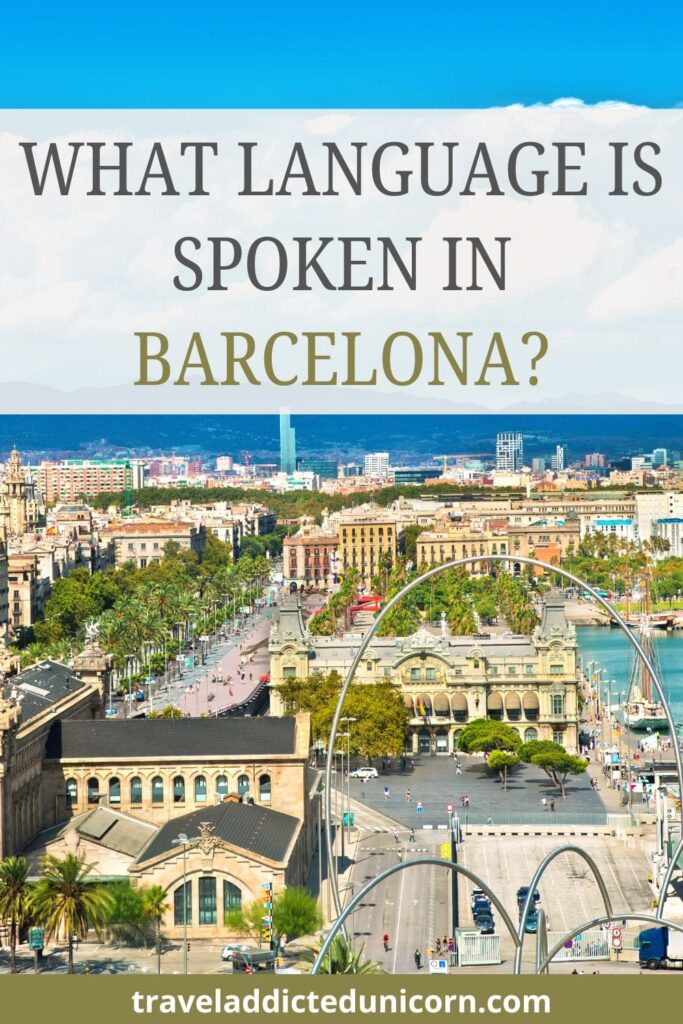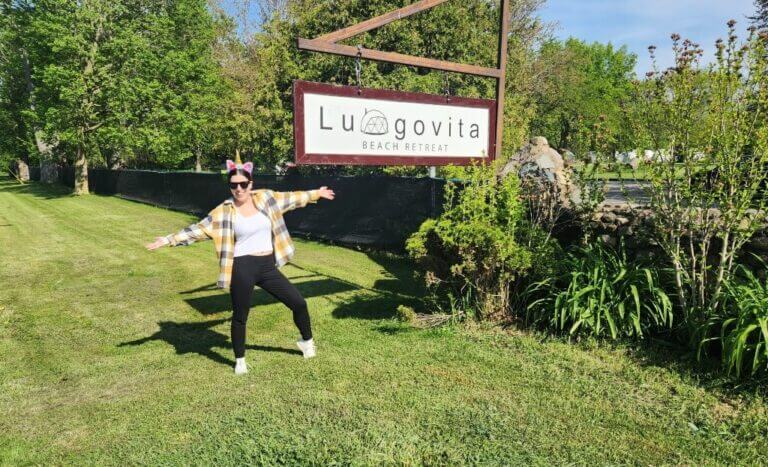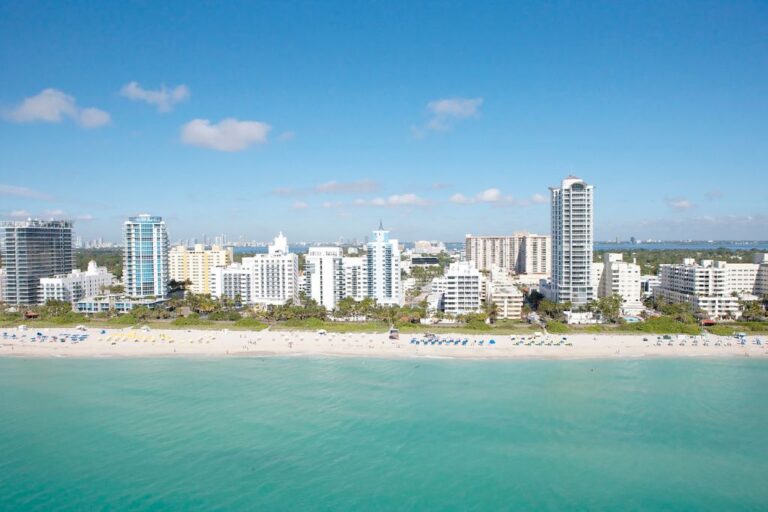What Language Is Spoken In Barcelona?

Are You Wondering What Language Is Spoken In Barcelona? Keep Reading To Find Out!
So what language is spoken in Barcelona then?
Barcelona is popular with its stunning architecture, rich history, and lively culture.
But one question often comes to mind for travelers: What language is spoken in Barcelona?
As a city with a unique cultural identity, Barcelona’s linguistic landscape is shaped by a fascinating blend of history and tradition.
In this post, we’ll uncover the main languages spoken in Barcelona, explain their significance, and provide tips for navigating the city’s multilingual environment.
Whether you’re planning a visit or simply curious, this guide will help you understand the linguistic background that makes Barcelona so special.
What Language Do They Speak In Barcelona?
In Barcelona, there are two official languages: Catalan and Spanish (Castellano).
As the capital of the Catalonia region, Barcelona has a strong Catalan identity, and Catalan is part of daily life.
It is commonly used in schools, government, media, and cultural events. Also, signs, menus, and public announcements are often in Catalan.
That said, Spanish is also spoken fluently by the majority of residents, making it easy for visitors to communicate if they speak Spanish.
In many cases, locals switch effortlessly between Catalan and Spanish depending on the context or audience.
English is also widely understood in tourist areas, so visitors shouldn’t face significant language barriers.
Understanding this bilingual dynamic enriches the experience of visiting Barcelona, offering a glimpse into the city’s rich cultural and linguistic heritage.

Do They Speak English In Barcelona?
Yes, people in Barcelona speak English widely, especially in tourist-heavy areas.
Many locals working in the hospitality, retail, and service industries, such as hotel staff, restaurant servers, and shop assistants, have a good grasp of English.
Popular tourist attractions, guided tours, and information centers also often provide services in English.
While English is commonly used in the city’s tourist hubs, it is less prevalent in more residential or less touristic neighborhoods.
Locals in these areas may primarily speak Catalan or Spanish.
When we visited we didn’t have a hard time communicating with the locals, most spoke enough English to understand each other.
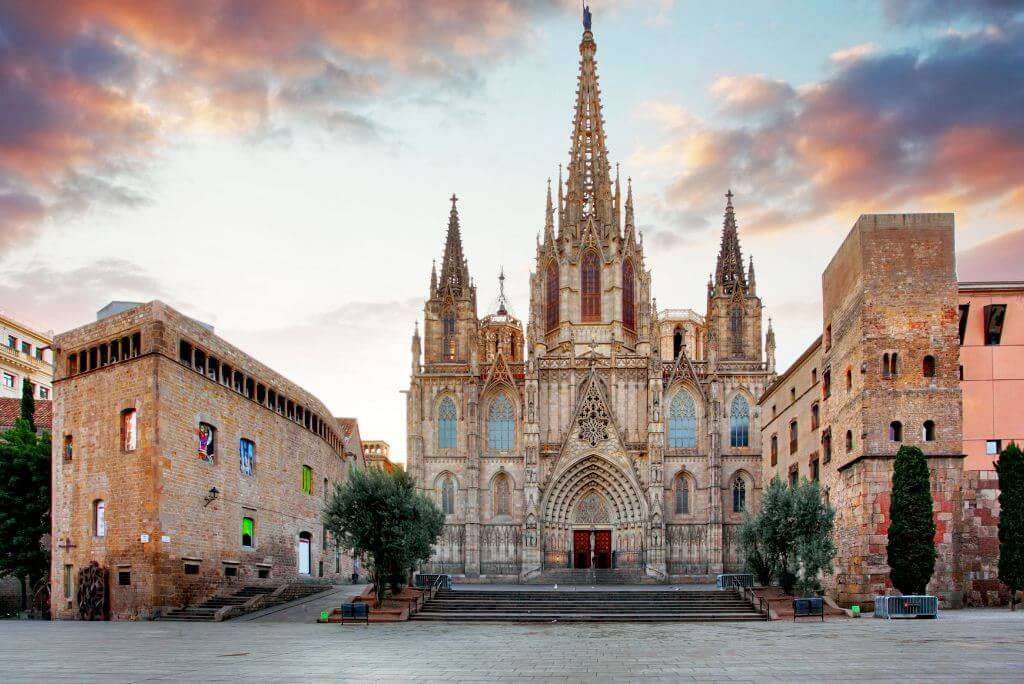
Useful Phrases To Learn Before Visiting Barcelona
Below is a table that can help navigate Barcelona and engage with both Catalan and Spanish-speaking locals!
| Catalan Phrase | Spanish Phrase | English Translation |
|---|
| Bon dia | Buenos días | Good morning |
| Bona tarda | Buenas tardes | Good afternoon |
| Bona nit | Buenas noches | Good night |
| Hola | Hola | Hello |
| Adéu | Adiós | Goodbye |
| Si us plau | Por favor | Please |
| Gràcies | Gracias | Thank you |
| De res | De nada | You’re welcome |
| Quant costa? | ¿Cuánto cuesta? | How much does it cost? |
| Parles anglès? | ¿Hablas inglés? | Do you speak English? |
| No entenc | No entiendo | I don’t understand |
| On és…? | ¿Dónde está…? | Where is…? |
| Un moment, si us plau | Un momento, por favor | One moment, please |
| Perdó | Perdón | Excuse me / Sorry |
| Sí | Sí | Yes |
| No | No | No |

FAQ: What Language Is Spoken In Barcelona?
Let’s take a look at some of the most frequently asked questions when it comes to what language is spoken in Barcelona.
Are Catalan and Spanish the same?
No, Catalan and Spanish are not the same—they are distinct languages with different origins, vocabulary, grammar, and pronunciation.
While both are Romance languages and share some similarities, they have significant differences.
Key Differences Between Catalan and Spanish:
Origins
- Catalan: Originates from Vulgar Latin spoken in the eastern Pyrenees. It is more closely related to Occitan, a language spoken in southern France.
- Spanish: Evolved from Vulgar Latin in the central Iberian Peninsula and has roots influenced by Arabic due to Moorish rule.
Vocabulary
While some words are similar due to their Latin roots, many are distinct. For example:
- Catalan: Llibre (book)
- Spanish: Libro (book)
- Catalan: Bon dia (Good morning)
- Spanish: Buenos días (Good morning)
Grammar
Catalan often uses different verb conjugations and sentence structures than Spanish.
- Catalan articles: el, la, els, les
- Spanish articles: el, la, los, las
Pronunciation
Catalan pronunciation has some similarities with French and Italian, while Spanish has its own distinctive sounds, such as the rolled “r” and the soft “c” (pronounced as “th” in Castilian Spanish).

Do Catalan and Spanish speakers understand each other?
Catalan and Spanish speakers can often understand each other to some degree, but it depends on their individual exposure to the other language.
While the two are distinct languages, they share a common origin in Vulgar Latin, which means they have similarities in vocabulary and structure.
However, they are not mutually intelligible to the same extent as, for example, different dialects of Spanish.
Factors Influencing Understanding
Familiarity and Exposure
- In Catalonia, where both Catalan and Spanish are official languages, most residents are bilingual and can switch seamlessly between the two. This bilingualism allows them to understand both languages easily.
- Outside of Catalonia, Spanish speakers with little exposure to Catalan may struggle to understand it fully, as Catalan has distinct grammar, vocabulary, and pronunciation.
Similarities and Differences
- Many words and grammatical structures are similar between the two languages due to their Latin roots
- However, Catalan also has unique elements that are closer to French or Italian, which can make it less intuitive for monolingual Spanish speakers.
Regional Influence
- In Catalonia, where Catalan is a key part of daily life, Spanish speakers often pick up Catalan words and phrases, improving their understanding.
- Catalan speakers are typically fluent in Spanish because it is also an official language and most people study it in schools alongside Catalan.
For travelers, this linguistic dynamic means that knowing Spanish will generally be sufficient for communication in Catalonia, including Barcelona.
However, learning a few phrases in Catalan can be a thoughtful way to connect with locals.
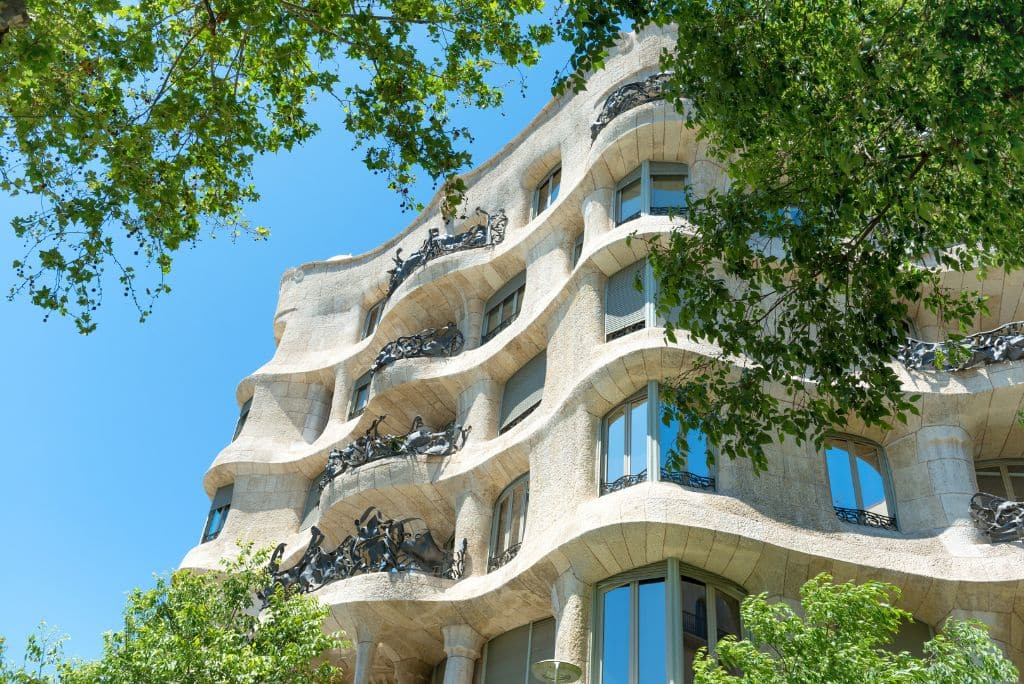
How similar are Catalan and French?
Catalan and French share moderate similarities as both are Romance languages which came from Vulgar Latin, but they are distinct languages with unique characteristics.
Catalan is more closely related to Occitan, spoken in southern France, and shares some vocabulary and grammatical structures with French.
For instance, words like bon dia (Catalan for “good morning”) and bonjour (French for “good day”) highlight their Latin roots.
Both languages use gendered articles, such as la for “the,” and have soft consonant pronunciations.
However, Catalan’s pronunciation is generally clearer and lacks the nasal vowels and silent letters typical of French.
Despite these parallels, Catalan grammar and syntax align more closely with Spanish or Italian, making it different from French’s unique structure and verb conjugations.
Additionally, Catalan vocabulary reflects influences from Iberian and Arabic, while French incorporates more Celtic and Germanic roots.
French speakers familiar with Romance languages might find Catalan somewhat accessible.
Therefore, the two languages remain linguistically cousins rather than siblings, each with a distinct cultural and linguistic identity.

Is Catalan easy to learn?
Learning Catalan can be relatively easy, especially for speakers of other Romance languages like Spanish, French, or Italian.
Due to many shared similarities in grammar, vocabulary, and sentence structure.
Catalan is quite phonetic, meaning words are generally pronounced as they are written, which simplifies learning pronunciation.
For Spanish speakers, much of the vocabulary and verb conjugation will feel familiar.
However, Catalan has distinct grammar and vocabulary, so it’s not just a dialect of Spanish, and it may take time to become comfortable with its unique features.
While there are fewer opportunities to practice outside Catalonia, the language’s closeness to other Romance languages makes learning easier, especially in a bilingual setting.
A lot of people use a website/app called Duolingo to learn another language.
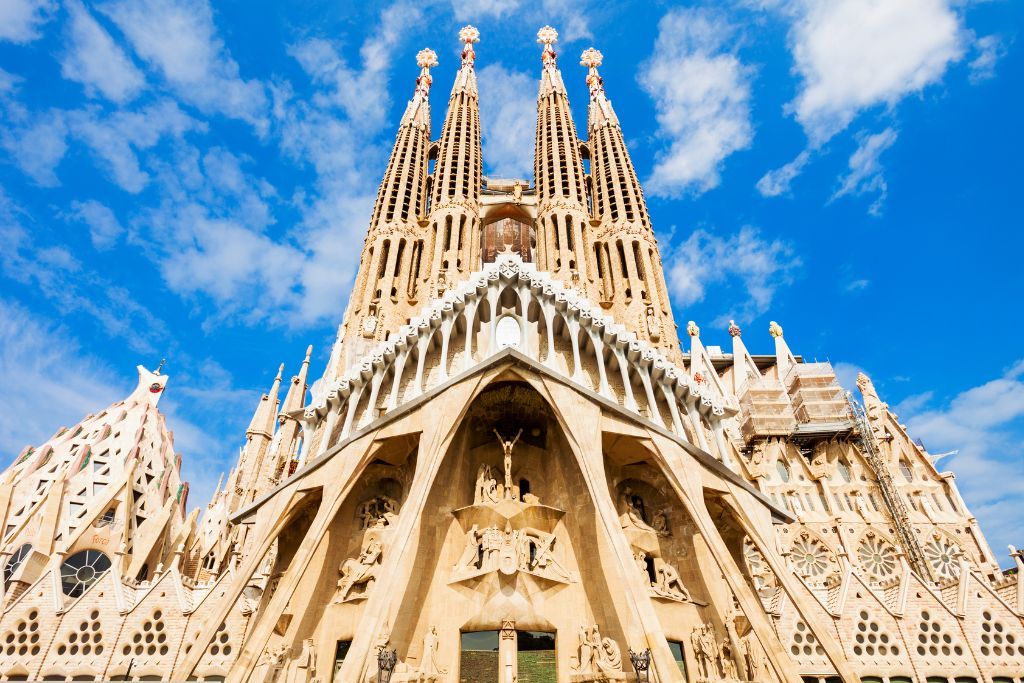
Can I understand Catalan if I know Spanish?
If you know Spanish, you will likely be able to understand Catalan to some degree.
Many words in Catalan and Spanish are the same or very similar.
However, there are some differences, particularly in pronunciation and vocabulary.
Catalan has distinct vowel sounds and the “l·l” sound, which doesn’t exist in Spanish, and some unique words like cotxe (car) in Catalan versus coche in Spanish.
While the overall structure is similar, Catalan also has differences in verb conjugation and grammar.
While Spanish speakers will likely find it easier to understand written Catalan, spoken Catalan may be more challenging due to these variations.
🦄 Related Barcelona Posts:
All You Need To Know About Park Guell, Barcelona
Barcelona: Gothic Quarter, La Rambla & Flamenco Show
10 Foods & Drinks To Try In Spain
5 Best Barcelona Ghost Tours To Take
13 Best Gaudi Barcelona Tours To Take
22 Best Things To Do In Barcelona In October
Barcelona: Casa Batllo, Casa Mila & Casa Vicens
Tips For Visiting Sagrada Familia For The First Time
Can You Drink The Tap Water In Barcelona?
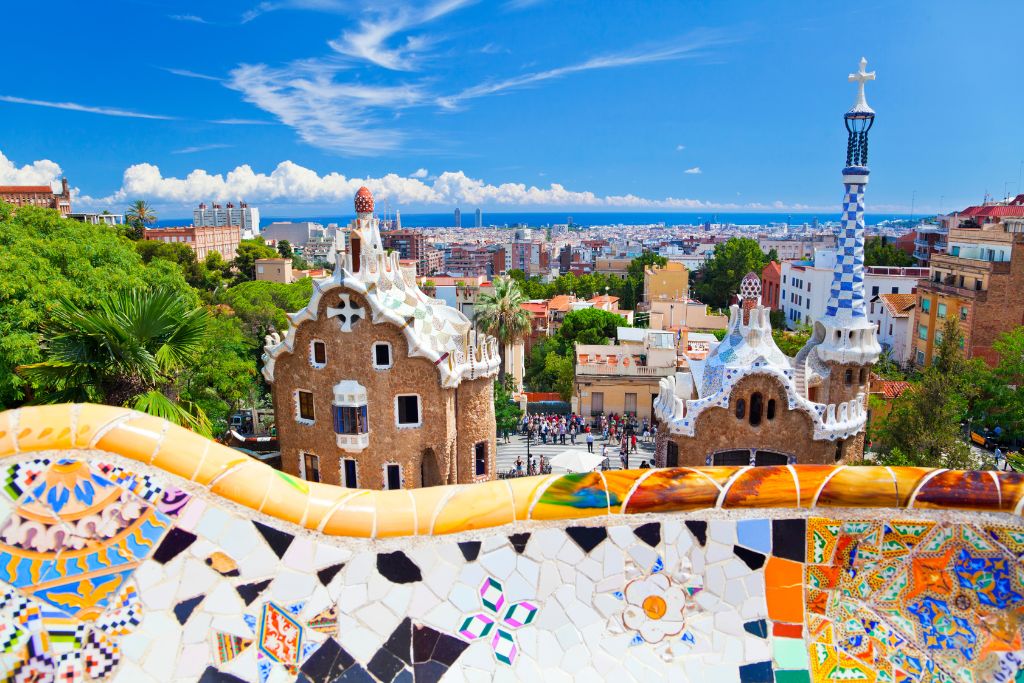
Conclusion: What Language Is Spoken In Barcelona?
In conclusion, Barcelona is a vibrant, multicultural city where Catalan and Spanish are both official languages.
While Catalan is deeply ingrained in the city’s cultural identity and is widely used in public life, nearly everyone speaks Spanish.
Additionally, many people in Barcelona can speak English, especially in tourist areas, making it accessible to travelers from around the world.
